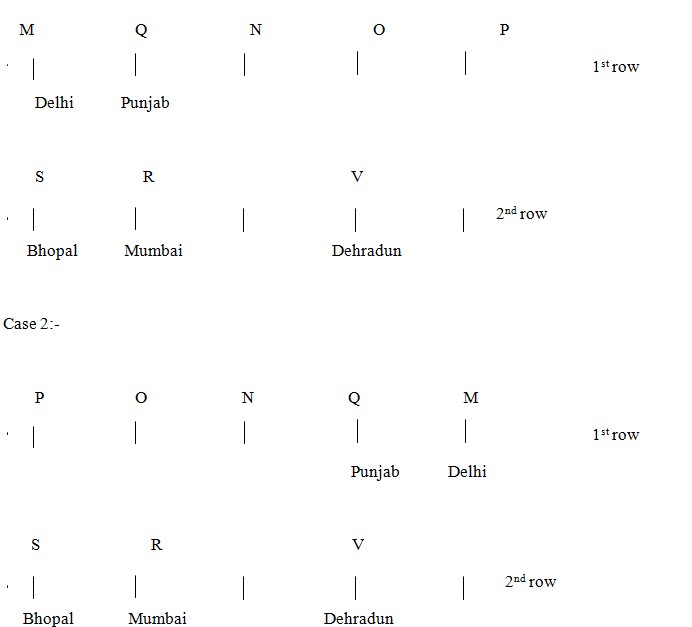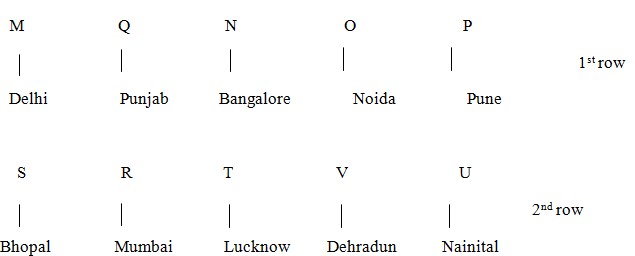Start learning 50% faster. Sign in now
Now for sitting arrangement – Only one member sits between O’s sister and M’s brother. Only two members sit between O’s father and U’s father. U’s husband, who likes Dehradun, sits third to the right of U’s uncle. R sits second to the left of U’s husband. The member who sits just opposite to U’s brother, who likes Mumbai, sits immediate left of M’s daughter. R’s grandfather, who likes Delhi, is not an immediate neighbour of N. U likes Nainital and Q likes Punjab. From these conditions there will be two cases: Case 1:-  Now Neither N nor U’s grandfather sits just opposite to U. As there will be no place left for U in case 2. So case 2 will be eliminated. From rest U likes Nainital and Q like PUNJAB. O likes neither Pune nor Bangalore. T likes Lucknow. P does not like Bangalore. So the final solution is –
Now Neither N nor U’s grandfather sits just opposite to U. As there will be no place left for U in case 2. So case 2 will be eliminated. From rest U likes Nainital and Q like PUNJAB. O likes neither Pune nor Bangalore. T likes Lucknow. P does not like Bangalore. So the final solution is – 
Which authority has the power to promulgate ordinances when Parliament is not in session in India?
According to Article 100 of the Indian Constitution, what fraction of members constitutes the quorum for meetings of either House of Parliament?
How many years must a person of Indian origin reside in India to become a citizen under the Citizenship Act, 1955?
The "Right to Education" for children aged 6 to 14 years became a fundamental right under which Constitutional Amendment in India?
The 'Fundamental Duties' of citizens are enshrined in which part of the Indian Constitution?
Who is known as the guardian and final interpreter of the Constitution?
Which article of the Indian Constitution guarantees the right to move to the Supreme Court for the enforcement of Fundamental Rights and authorizes the ...
Which of the following statements about Fundamental Rights in the Indian Constitution is FALSE?
Which of the following indices is not considered while calculating Human Development Index (HDI)?
Identify the incorrect pair related to Indian Constitutional Amendments: